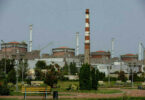Hamidreza Azizi / Hanna notte
Russia believes that Iran is obliged to comply with the Additional Protocol. And if Tehran refuses to follow it and goes to further escalation, Moscow’s patience may run out. Tehran’s intransigence in response to constructive proposals from the West – and they may well follow from the Biden administration – could lead to a toughening of Russia’s position, as was the case in 2006 and 2010
A month has passed since Joe Biden’s inauguration, and the new US administration has not yet presented a plan for how it intends to resume negotiations with Iran on a return to the 2015 nuclear deal. In the meantime, Tehran seems intent on playing to aggravation by gradually abandoning its nuclear obligations.
In November 2020, the Iranian parliament passed a law obliging the government to return to the implementation of those sections of the program that were suspended under the nuclear deal. In compliance with this law, the Iranian authorities have already installed improved centrifuges at Natanz and Fordow, resumed uranium enrichment to 20 percent levels, and began producing uranium metal.
Even tougher steps may follow. The same law requires Tehran to stop implementing the IAEA Additional Protocol, which provides for large-scale inspections of Iranian nuclear facilities. Iran has threatened that the protocol will be suspended on February 21 if the US does not lift sanctions related to its nuclear program.
Iranian Intelligence and National Security Minister Mahmoud Alawi made an unprecedentedly tough statement on February 9 that further Western pressure could push Iran to develop nuclear weapons, as the “cornered cat” behaves differently than the one walking on its own. yourself. This provocative position of Iran has caused concern not only in the West, but also in Moscow.
Russia has supported Iran in disputes over its nuclear program since the Trump administration announced the U.S. withdrawal from the nuclear deal in May 2018. When former Secretary of State Mike Pompeo tried to secure international support for expanding the arms embargo on Iran, Russia responded that the US was trying to sit on two chairs.
Later, in the summer of 2020, the IAEA Board of Governors called on Tehran to provide international inspectors with access to possible undeclared material depots and nuclear facilities that functioned before 2003. Russia called this resolution counterproductive. And the Trump administration’s “maximum pressure” campaign on Tehran has been repeatedly criticized by Russia as illegal and incorrect, and has called on other participants in the 5 + 1 format to help Iran continue to receive economic benefits from participating in the nuclear deal.
However, all of the above does not negate the fact that Moscow has always insisted that Iran has the right to its own nuclear program only on the condition that IAEA supervision guarantees its peaceful nature. Russia and the United States could disagree on methods – for example, the need for sanctions pressure – but they were in solidarity on the ultimate goal: Iran should not have nuclear weapons. Therefore, Iran’s recent actions and statements raise the question of how prepared Moscow is to continue supporting Tehran if it continues to escalate?
Judging from past crises, Russian support for Iran is far from unconditional. In 2003, Russia repeatedly called on the Iranian leadership to sign the Additional Protocol, and two years later strongly criticized Tehran when it suspended its voluntary implementation. In early 2006, Moscow even supported the decision of the IAEA Board of Governors to submit the Iranian dossier for discussion to the UN Security Council.
In 2009 and 2010, Russia approved the introduction of UN sanctions against Iran, when it turned out that the Islamic Republic was hiding the construction of the then secret Fordow facility and rejected a proposal to send low-enriched uranium to Russia for enrichment to 19.75% and the subsequent production of fuel cells from it during France for the Tehran Research Reactor.
Back then, Iranian nuclear ambitions worried Moscow far less than Washington. Nevertheless, she was still inclined to believe that the Iranian approach to the nuclear program was too uncompromising and adventurous, and also expressed doubts that it was possible to do business with Ahmadinejad.
Now that Iran has once again tightened its rhetoric and has begun to declare more and more that it will act contrary to the provisions of UN Security Council Resolution 2231, Moscow has returned to a more critical stance towards Tehran. According to Russia, the Additional Protocol must be implemented in order to ensure the transparency of Iran’s actions, therefore Tehran’s threats to curtail cooperation with the IAEA cause concern in Moscow.
In November 2020, Russia announced that Tehran’s withdrawal from the Additional Protocol would significantly worsen the situation, and several days later warned that Iranian plans to install three more cascades of advanced IR-2m centrifuges at Natanz exacerbated “an already difficult and tense state of affairs.”
Iran’s recent announcement about the production of uranium metal sparked an even tougher reaction from Moscow. They called on Tehran for “restraint and responsibility” and said Russia was ready to work closely with the Biden administration to preserve the nuclear deal.
Now, when American diplomats, led by Secretary of State Anthony Blinken and special envoy for Iran, Robert Mally, are trying to reach a “more reliable” nuclear deal with Iran, it is worth considering that Russia is not going to, together with the United States, put pressure on Tehran in matters of missile technology or Iranian assistance. allies in the region. In Moscow’s view, neither one nor the other has anything to do with the nuclear deal.
Also, Russia is unlikely to agree to put forward more stringent requirements to Iran in the nuclear field, such as prolonged restrictions or stricter inspections. Moscow considered the original deal to be quite balanced and never agreed with opponents of the nuclear deal, who demanded that Iran be deprived of the right to enrich uranium.
So Russia will not demand additional concessions from Tehran. Moreover, Moscow is expressing concern that the IAEA and the OPCW are discriminating against US adversaries like Iran and Syria. Russian diplomats sneer that these organizations operate within the framework of an “international order based on rules” that the United States comes up with at its own discretion.
At the same time, Russia believes that Iran is obliged to fulfill the Additional Protocol. And if Tehran refuses to follow it and goes to further escalation, Moscow’s patience may run out. Tehran’s intransigence in response to constructive proposals from the West – and they may well follow from the Biden administration – could lead to a toughening of Russia’s position, as was the case in 2006 and 2010. Because Moscow is also concerned about the problem of nonproliferation of nuclear weapons and seeks to preserve the 5 + 1 format. Even if Iran feels like a “cornered cat,” escalation and too harsh rhetoric can ruin its relations even with its closest allies in the UN Security Council.
The article was published as part of the Russia-USA Dialogue: Generation Change Project . The views expressed in this article reflect the personal views of the authors.
Courtesy: (carnegie.ru)






